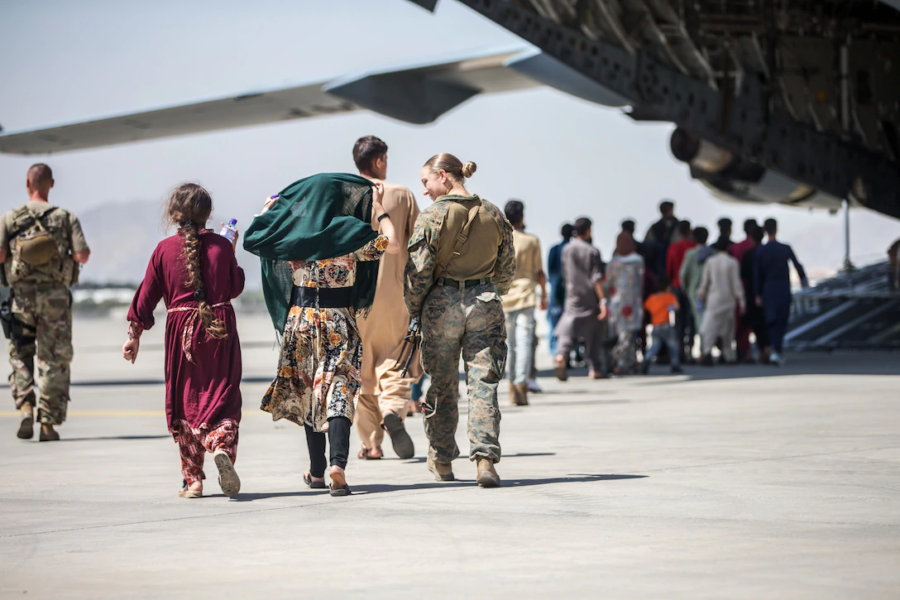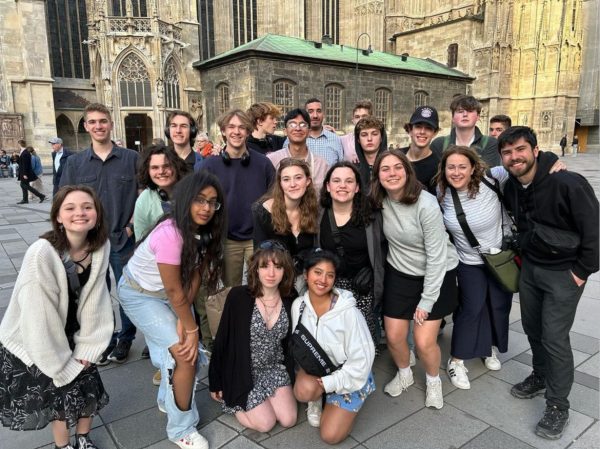Maryland Prepares to Welcome Afghan Refugees
Photo by Marine Corps Sgt. Samuel Ruiz via Department of Defense
A marine walks with children at the evacuation of Hamid Karzai International Airport in Kabul, Afghanistan, Aug. 24, 2021.
As Afghans stream into the United States following Taliban takeovers, Governor Hogan agreed on Aug. 16 to grant at least 180 Special Immigrant Visas (SIVs) to refugees in need. To obtain an SIV, refugees will be required to have worked for U.S. forces during the war on terrorism.
For refugees seeking SIVs, a 5-step application process including security screenings and a visa interview will be enforced. Once given a SIV, a refugee’s spouse, as well as unmarried children under the age of 21, are permitted to enter the United States. In addition, any family members over the age of 14 must complete a visa interview.
“It shows how much Hogan cares about other people and not just people in this country,” sophomore Astrid Espinoza said.
When arrived, refugees must rely on refugee organizations contracted by the U.S. government. The International Rescue Committee (IRC), prepares to resettle 500-800 people in Maryland within the next 6-12 months. The IRC provides children with schooling, while adults learn English and gain work experience. Furthermore, case management services are provided such as medical care.
“If they worked to help America during the war and they speak English then they’re essentially already American,” junior Charlotte Popson said.
The U.S. government will give every Afghan refugee entering the country $1,225 regardless of where they settle. Afghan refugees under the Special Immigrant Visa program may apply to the U.S. Refugee Admissions Program financial benefits offered to all refugees. Financial benefits are available for up to eight months after being admitted into the U.S.
“Even though we’ve struggled a lot with covid this year financially, they are coming to our country in need of financial support,” Astrid Espinoza said.
All refugees will be tested for covid-19 upon arrival, with the opportunity to get the vaccine. According to the World Health Organization, Afghanistan received 150,000 positive covid tests, with less than five percent of the population vaccinated. In addition, measles outbreaks are becoming a concern for Afghan refugees coming to the U.S. The White House considers vaccinating Afghans for measles before they enter the country.
“I think it’s more of a concern if refugees will have the choice of where they go in the country if they don’t want to go to a covid hotspot,” English teacher Casey Defrancesco said.
Most refugees coming to Maryland have been assigned by refugee organizations to live with family members, as many are not financially stable. Refugee organizations in Maryland, such as the Lutheran Immigration and Refugee Service (LIRS) and the IRC will be responsible for housing the rest.
“They helped us and now we have to help them in return,” Charlotte Popson said.









